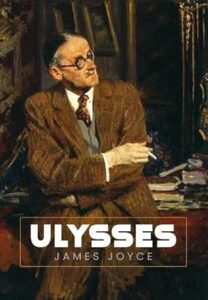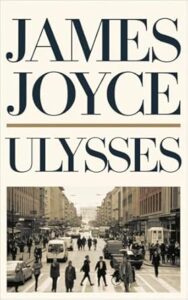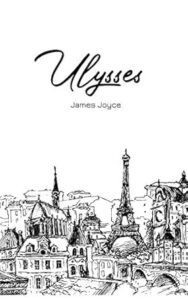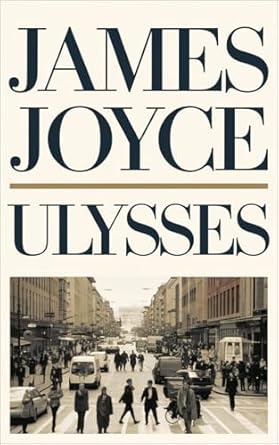Ulysses by James Joyce is one of the most banned and controversial books in literary history. It was first published in 1922, but long before that, excerpts of the novel had already caused outrage.
In 1918, chapters from Ulysses began appearing in the American magazine The Little Review. These installments sparked legal trouble due to the book’s explicit content, particularly a passage depicting a character’s sexual thoughts.
In 1921, the magazine was found guilty of obscenity by a U.S. court, and Ulysses was officially banned in the United States. Copies were seized by customs officers, and the book was declared too obscene for readers. It wasn’t until 1933 that a landmark court ruling overturned the ban, allowing Americans to legally read Joyce’s work. In Britain, too, the book faced censorship and moral outrage, delaying its publication and circulation.
James Joyce, the author of Ulysses, was an Irish writer born in Dublin in 1882. He was a key figure in modernist literature and is known for breaking literary rules. Joyce was fearless in his writing, using experimental techniques like stream-of-consciousness and interior monologue to show what goes on inside the human mind.
Although he lived much of his life in exile across Europe, his stories always remained rooted in Ireland, especially Dublin. Joyce wasn’t afraid of controversy. He believed in writing the truth—about thoughts, bodies, and the everyday experience—even if it shocked people. His boldness is one of the reasons he’s remembered as one of the greatest authors of the 20th century.
The story of Ulysses takes place over the course of one single day—June 16, 1904—in Dublin. It follows the main character, Leopold Bloom, as he goes about his day, running errands, interacting with strangers, and reflecting on his life. Along the way, we also step into the minds of other characters, including Stephen Dedalus, a young writer, and Molly Bloom, Leopold’s wife.
The novel is rich in symbolism and loosely parallels Homer’s ancient epic, The Odyssey, with each chapter mirroring a part of that journey. But instead of gods and warriors, Joyce focuses on ordinary people and their inner thoughts.
Themes like identity, loneliness, memory, sexuality, and love run through the book. Joyce’s groundbreaking style allows readers to experience the messiness and beauty of the human mind.
Even though it was once banned for being obscene, Ulysses is now considered a literary masterpiece. Its daring structure and language changed the way novels could be written. It paved the way for writers to be more honest and experimental.
The book is still studied today for its deep psychological insights and creative style. What once shocked the world is now celebrated for its brilliance. Ulysses continues to matter because it reminds us that literature should reflect the truth—even if it’s uncomfortable—and that the freedom to write and read openly is something worth defending.



About the Author
James Joyce was an Irish writer and one of the most important and influential authors of the 20th century. He was born on February 2, 1882, in Dublin, Ireland, and is best known for his groundbreaking modernist works that changed the way novels were written.
Joyce is most famous for his novel Ulysses, published in 1922. The book follows a day in the life of Leopold Bloom, using experimental styles like stream of consciousness—a technique that shows a character’s thoughts in real time. Ulysses was considered shocking and confusing when it first came out, and it was even banned in several countries for obscenity.
Another important work by Joyce is A Portrait of the Artist as a Young Man, a semi-autobiographical novel about a young man named Stephen Dedalus discovering his identity as an artist. Joyce also wrote Dubliners, a collection of short stories that show everyday life in Dublin, and his final work, Finnegans Wake, which is famous for its complex language and dreamlike style.
Joyce spent most of his adult life in continental Europe, living in places like Paris, Zurich, and Trieste, but his writing always focused on Ireland, especially Dublin. He died on January 13, 1941, in Zurich, Switzerland.
Today, James Joyce is celebrated for his bold innovations in language, narrative, and literary form. His work continues to be studied, admired, and debated all over the world.

